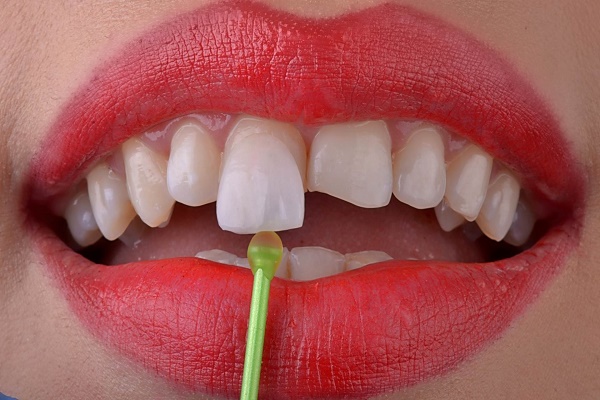Cozmoderm Clinic | Best Dermatology Clinic For Skin and Hair Care In Nagpur
Veneers
Home / Veneers

veneers
Dental Veneers, often called teeth veneers are the materials thin in size, placed over the teeth so as to mainly improve an aesthetic oral appearance and to save the teeth from any further damages. In this procedure, a small amount of tooth enamel is removed with the veneer then being applied on. While they give the best natural look to our teeth, they also provide great strengths and resilience to them. Dental Veneers are primarily the customized tooth-shaped and colored shells that can go over our teeth; matching their size, shape and color.
Types of Dental Veneers
Dental veneers can be made from porcelain or from resin composite materials. Porcelain veneers resist stains better than resin veneers. They also better mimic the light-reflecting properties of natural teeth.
What Types of Problems Do Dental Veneers Fix?
Veneers are routinely used to fix:
- Teeth that are discolored because of root canal treatment, stains from tetracycline or other drugs, excessive fluoride, large resin fillings, and other causes
- Teeth that are worn down
- Teeth that are chipped or broken
- Teeth that are misaligned, uneven, or irregularly shaped (for example, have craters or bulges in them)
- Teeth with gaps between them (to close the space between these teeth)
Dental Veneer Benefits
Veneers offer these advantages:
- They provide a natural tooth appearance.
- Gums tolerate porcelain well.
- Porcelain veneers are stain-resistant.
- A color can be selected to make dark teeth appear whiter.
- They generally don’t require as much shaping as crowns do, yet they are stronger and look better.
Dental Veneer Risks
Downsides to dental veneers include:
- The process cannot be undone.
- Veneers cost more than composite resin bonding.
- Veneers usually cannot be repaired if they chip or crack.
- Because enamel has been removed, your tooth may become more sensitive to hot and cold foods and drinks.
- Veneers may not exactly match the color of your other teeth. Also, the veneer’s color cannot be altered once it’s in place. If you plan on whitening your teeth, you need to do so before getting veneers.
- Though not likely, veneers can dislodge and fall off. To minimize the chance of this occurring, do not bite your nails, chew on pencils, ice, or other hard objects, or otherwise put too much pressure on your teeth.
- Teeth with veneers can still experience decay, possibly necessitating full coverage of the tooth with a crown.
- Veneers are not a good choice for people with unhealthy teeth or weakened teeth (as a result of decay, fracture, or large dental fillings), or for those who don’t have enough existing enamel on the tooth surface.
- People who clench and grind their teeth are poor candidates for porcelain veneers, as this can cause the veneers to crack or chip.
